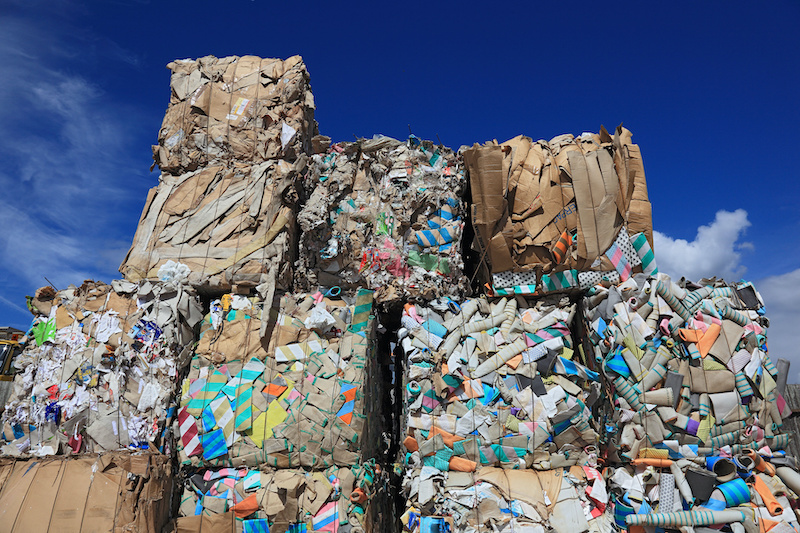A Melbourne Recycling Company has faced court and been fined $115K for failing to maintain a safe workplace after multiple fall and machine guarding incidents. The incident provides learning for industries reliant on the use of plant and machinery.
According to the Victorian Work Safety Safety Regulator, SKM Services Pty Ltd was convicted and fined in the Melbourne Magistrates’ Court on August 7 after earlier pleading guilty to four charges. The company was also ordered to pay costs of $18,000.
The recycling company was fined $50,000 for two charges of failing to maintain a safe workplace and failing to provide safe plant following an incident at its Laverton North recycling sorting facility in 2017.
The recycling company was also fined $15,000 on a third charge of failing to provide safe plant relating to inadequate guarding around temporary plant after the 2017 incident.
An additional $50,000 fine for a fourth charge was issued for failing to maintain a safe workplace for a separate incident at the same site in 2018.
Fall incident results in head injury
The court heard that in the 2018 incident, a 60-year-old woman working on a paper sorting conveyor line from an elevated platform fell 2.9 metres to the ground below.
The worker was taken to hospital with a serious head injury.
Work Safety investigators found there was no fall protection next to the ladders providing access to an overhead footbridge and that the ladders did not have the necessary handrail at the top to assist getting to and from the footbridge.
Agricultural Safety | Worker caught in machine
Labour hire company failed safety of workers
Worker dragged up a conveyor
In the earlier incident, the court heard a 68-year-old worker was dragged up a conveyor and trapped against a steel beam on a separator machine when the paper sorting line was restarted while he was performing routine maintenance.
The court heard there were no fall protection risk controls in place for the task, which required the worker to access the separator’s conveyor belt at a height of more than two metres.
The worker had forgotten to turn off the separator’s isolation switch located at the top of the conveyor.
Another worker who heard the injured man’s screams called out for the machine to be stopped after being unable to locate an emergency stop button.
The trapped worker suffered multiple hip and pelvis injuries and was unable to work for about four months.
Emergency stops not accessible
WorkSafe inspectors found there were no emergency stops in the vicinity of the separator and the machine’s three energy isolators were not locked out or tagged and were located more than two metres above ground inside the perimeter guarding.
They also found; a gap in the removable perimeter guarding, that tools to remove the guards were accessible by operators and that no energy isolation point was fitted onto the machine’s main control.
Failure to address guarding related issues in a timely manner
Four months after the incident, inspectors observed the separator at the recycling company had been reconfigured but found perimeter guarding that could be removed by hand; perimeter guarding that was open or not secured; and electrical proximity interlock switches on the gates of the perimeter guarding that were disconnected, enabling access to the underside of the conveyors while the machine was operating.
WorkSafe Victoria Executive Director of Health and Safety Julie Nielsen said falls from heights and inadequate guarding were both well-known causes of workplace injuries and deaths.
“These horrific incidents should serve as a warning to all employers that failing to protect workers can have life altering impacts on injured workers and lead to convictions and fines for those responsible. There are no excuses for working at height without guardrails or other fall prevention measures, or for failing to have adequate guarding and lock-out systems in place and WorkSafe will not hesitate to prosecute employers who fail to protect their workers.”
WorkSafe Executive Director of Health and Safety Julie Nielsen
In another related Queensland incident, two Directors of an Auto Recycling Company were fined after they pleased guilty to industrial manslaughter after a forklift incident.
You should always consider the range and scope of hazards when working with machinery.
The first stage of the process involves identifying hazards, assessing risks associated with the machinery and ultimately eliminating or controlling those risks by isolating them or using an alternative suitably engineered piece of plant or equipment.
Secondly, you should train staff in the safe operation of machines and equipment and provide written procedures in the worker’s first language.
Thirdly you should develop and implement comprehensive (but understandable) safe operating procedures in consultation with employees and health and safety representatives.
Fourthly, ensuring that safety guards and gates are compliant with known standards and fixed to machines at all times.
Fifthly it’s important to regularly service and inspect machines and equipment.
You should also consider placing signs on or near a machine to alert employees of the dangers of operating it and ensure that fall protection such as guards and rails are in place when workers are working from height or near drops.
If you or your business needs support to ensure that machine guarding practices or work safety systems and procedures are up to date, call Safetysure on 1300 087 888 for a free no obligation chat.
WHS Offence Categories Queensland
Brisbane construction company fined for failure to manage critical risk







Leave A Comment